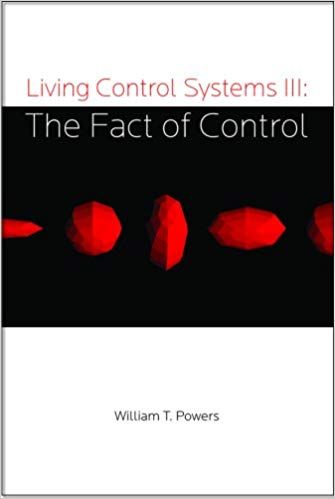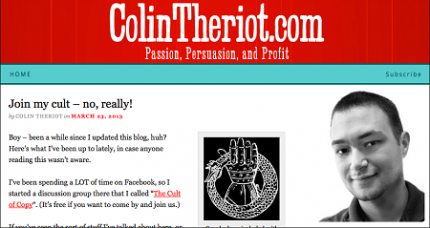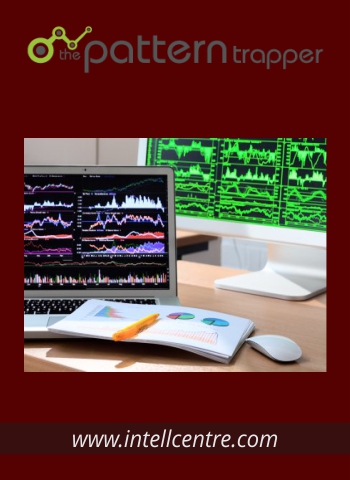
William T. Powers – Living Control Systems III – The Fact of Control
| Product Type | Ebook |
|---|---|
| Format Type | 1 PDF, 1 JPEG |
| Author | William T. Powers |
| Publisher | Benchmark Publications Inc.; First Edition edition |
| File Size | 78.02 MB |
| ISBN-10 | 0964712180 |
| ISBN-13 | 978-0964712188 |
| Pages | 204 |
Living Control Systems III continues Powers’ revolutionary approach to understanding living organisms as purposeful agents whose actions serve to control their environments. A unique feature of the book is the accompanying computer programs where Powers puts his models where his mouth is, graphically demonstrating how negative-feedback control systems can account for a wide range of goal-oriented behavior.
This book is required reading (and computing) for anyone seeking a deep understanding of the behavior of living organisms. –November 2008 – Gary Cziko,
Professor Emeritus, University of Illinois
Author, Without Miracles; The Things We Do – MIT Press<br /><br /> –Gary Cziko, Professor Emeritus, University of Illinois
Author: Without Miricales; The Things We do MIT Press
“The field of behavioural science, combining psychology, sociology and neuroscience, has diversified over the last century such that there is a desperate need for an integrative theory.
William T. Powers, medical physicist and engineer, proposes that control is the unifying process. Living Control Systems III is the latest in an influential but contentious series of works in which Powers presents his theory of perceptual control and illustrates its explanatory power.
The book is organized around an accompanying compact disc containing 13 computer simulations of perceptual control…from the tracking of moving targets and the simulation of balance, to three-dimensional models of arm coordination and the emergence of crowd behaviour.
Powers uses a combination of common sense reasoning, philosophical argument and mathematical models to make his case. Throughout, the style is engaging yet authoritative.” –Used with permission from NATURE | 13 November 2008 by Warren Mansell, Senior Lecturer School of Psychological Sciences University of Manchester, Manchester, UK –Nature
“…last week I read the book and played with the demos. It was and is wonderful. I knew some of the demos from older versions, but these ones are so much more easy to use for a simple computer layman as I am. And it is so convincing when one sees negative feedback control at work.” Dr. Frans X. Plooij,
Director International Research-institute for Infant Studies (IRIS)
The Netherlands –Dr. Frans X. Plooij
About the Author
Bill Powers grew up in a suburb of Chicago, Illinois and served in the United States Navy in World War II, after which he earned his Physics degree from Northwestern University on the GI Bill.
His interest in control theory as a model of behavior began while he was a medical physicist at the Veterans Administration Research Hospital in Chicago, where he designed many devices for medical research; notably, a curve-tracer for plotting isodose contours in the beam of radiation from a Cobalt-60 therapy machine.
While attending the Graduate School of Psychology at Northwestern in 1960, he worked part-time as a technician in the Department of Astronomy where later he became chief systems engineer. In that capacity, Powers designed and built low-light-level television systems for astronomy. He was involved in the design of the Lindheimer Astronomical Research Center, and was responsible for the design and building of the Corralitos Observatory. He created the automatic all-sky photometer for use on the moon (for Apollo 18, which never flew).
During this period, Powers conducted several one-quarter seminars on control theory at NU, sponsored by Don Campbell and Hugh Petrie.
Throughout these early years, he was publishing regularly on the subject of control theory His book, Behavior: The Control of Perception was the culmination of 20 years study when it was first published in 1973 (2nd edition, revised and expanded, Benchmark Publications 2005).
In 1984, Powers and his colleagues founded the Control Systems Group (CSG); members participate in research, discussion, and practical application of control theory, now called perceptual control theory (PCT). They communicate on line regularly, and hold an annual International Conference
Powers retired in 1990 from the Chicago Sun Times, where he spent over a decade as a technician in the technical services group. Among many special projects, he developed a system for receiving newsprint manifests by wire, and won the Marshall Field Award for his microcomputer system for receiving, formatting, and typesetting satellite-broadcast stock tables in real time.
Throughout his varied career, and ever since, he has continued his work on developing a control-system model of behavioral organization. In retirement, Powers spends his time writing, giving seminars and papers at scientific meetings, conducting research and working with colleagues on collaborative projects, such as building testable models of the theory. When asked to describe himself, Bill said:
I have always been pretty much a blue-collar type, by training and by preference.



![[Audio Only] CC19 Workshop 15 - Advanced Relational Life Therapy (RLT) - Terry Real](https://intellschool.com/wp-content/uploads/2022/02/ajHcWg3pZEWoZ4CLN52R4A-200.jpg)



























Reviews
There are no reviews yet.